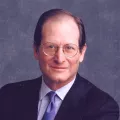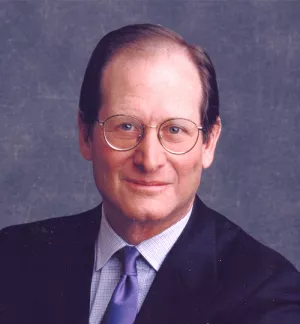Mark Hurd, the successful Hewlett-Packard CEO, has to resign because he lied on his expense accounts--hiding the identity of female marketing consultant with whom he had one-on-one dinners in cities around the world from 2007-2009.
As with General Stanley McChrystal, Governor Elliot Spitzer, golf icon Tiger Woods and so many others, we are once again scratching our heads and asking about personal indiscretions, not major crimes or core institutional failures, that brought a person low. How could he do something so self-destructive and stupid?
In Hurd's case, the HP board of directors made the proper decision in forcing him to leave. After it began an internal investigation of the contractor's claims of sexual harassment, the board discovered, as the company statement said, that "there was no violation of HP's sexual harassment policy, but [the investigation] did find violations of HP's Standards of Business Conduct."
According to news reports, those violations involved, at the least, false expense accounts, even though the nature of the CEO-consultant relationship is not yet clear. (Did Hurd also pay the contractor for certain favors or for work not performed?)
But for a CEO seeking to lead a company through word and deed--including a commitment to honest accounts, fair dealing and employee adherence to legal and ethical standards---lying to the company itself on a financial issue, even if a relatively small one, violates a standard that cannot be breached. The corporate death penalty that follows from violating such a standard cannot be stayed just because Hurd is of great value to the company. As one of the HP investigators said: "It had to do with integrity, had to do with credibility, had to do with honesty." (Ironically, according to the Wall Street Journal, Hurd was just beginning negotiations with the Board over a new three year arrangement worth $100 million.)
So the interesting question is not whether Hurd had to go--in my view it is clear, he did. The interesting question is rather, with all his success and all his power and all his money, why would he act in such a self-destructive way--just as we ask (in addition to having our own personal judgments), how could McChrystal be so stupid to go on the record with a reporter, how could Tiger Woods be so stupid as to engage in serial affairs, how could Elliot Spitzer be so stupid to frequent prostitutes? And on and on about so many other people with fame and power who have fallen because of personal indiscretions, not high crimes or improper behavior that caused major institutional failure.
We have all heard the variety of armchair explanations for these personal transgressions.
The person was arrogant, feeling entitled and above the rules that applied to everyone else.
The person was self-destructive--deep within his or her personal history were seeds of self-doubt or self-loathing or dislike of the public role.
The person was embarrassed and was trying to hide something. (Obviously Hurd didn't want the name of the consultant in company records, but why didn't he just pay for the expense account items with his own funds and not seek reimbursement?)
The person was tone-deaf and simply oblivious to the impropriety and consequences of the personal indiscretion. (Companies have to educate employees against the triad of indifference to law and ethics: "It isn't wrong; even if it is, the company won't catch me; even if it does, it won't do anything because this is not important.")
Unfortunately, because the (multiple) well-springs of human behavior are so often hidden from view (even for the person engaged in the self-destructive acts), the news necessarily reports on the prurient details of "how" the mighty have fallen, not the deeper and much more difficult question of "why." Then on to the successor and the future of the institution.
To get to that "why" requires much more complex and detailed reporting beneath the protective wax of PR surfaces, with nuanced explanations of multiple motivations coming out long after the fact--if at all. Yet for these striking falls from grace to be true cautionary tales, we need sensitive reporters and writers to help us understand why remarkable people blew themselves up in such inexplicable fashion.
I know from the morning papers that Mark Hurd has been rusticated for lying.
But I am staring at the headlines and asking, like so many others and on so many recent occasions, "what was he thinking?"
Heineman, Ben. “HP's CEO, Mark Hurd: How Could He Do Something So Stupid?.” The Atlantic, August 7, 2010


